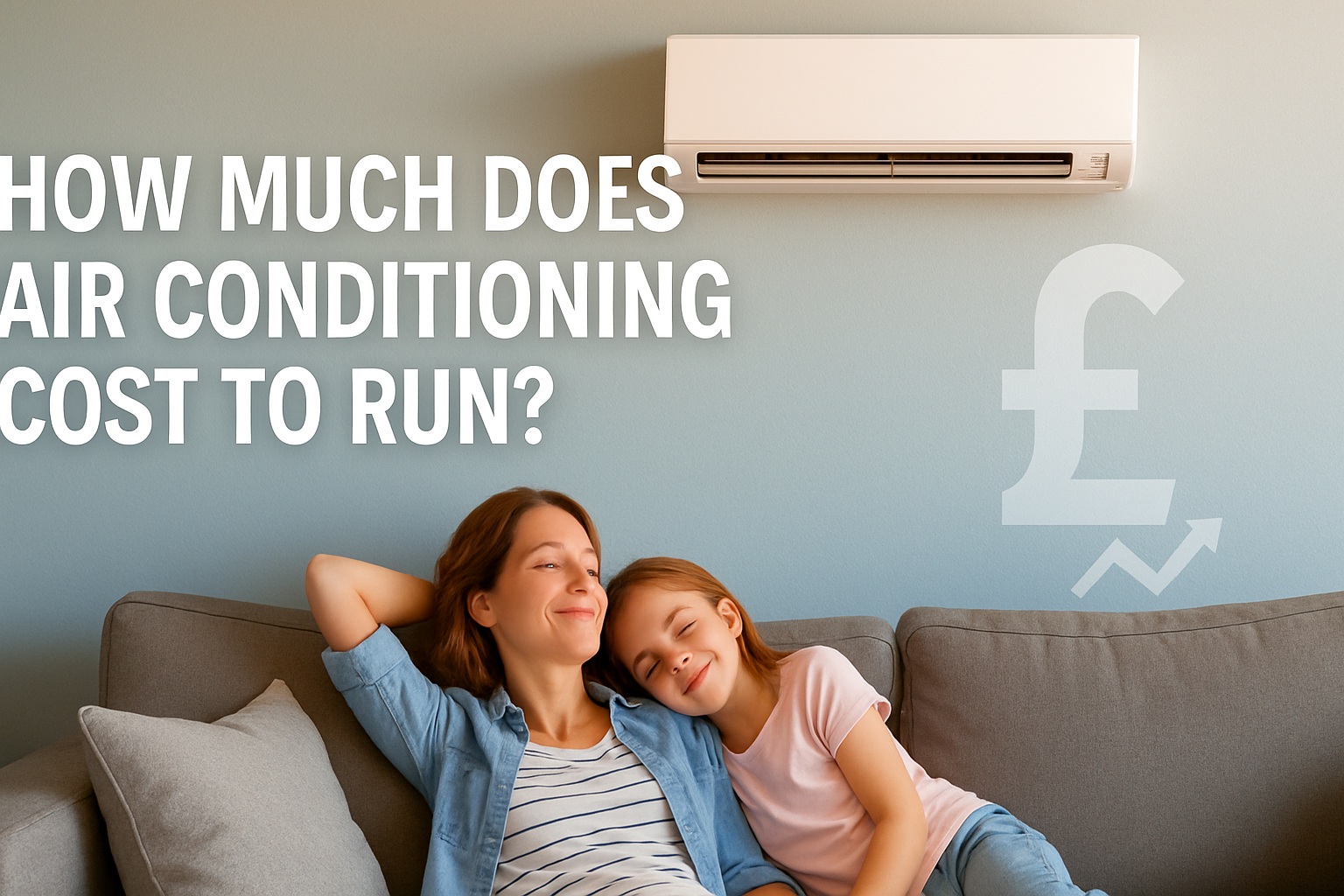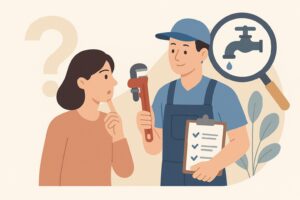One of the most common questions we receive at LW Gas is about running costs. Many homeowners across Winchester, Southampton, and surrounding areas are concerned that air conditioning will dramatically increase their electricity bills. The reality is far more encouraging – modern air conditioning systems are remarkably energy-efficient, and understanding the actual costs can help you make an informed decision about cooling your home.
Understanding Air Conditioning Energy Consumption
Air conditioning running costs depend on several key factors: the system’s energy efficiency rating, your local electricity rates, usage patterns, and the size of the space being cooled. Modern units are significantly more efficient than older systems, with many achieving A++ energy ratings that keep operating costs surprisingly low.
A typical 3.5kW air conditioning unit – suitable for an average living room – consumes approximately 1.2kW of electricity per hour when running at full capacity. However, modern inverter technology means units rarely operate at maximum power, instead adjusting output to match cooling demand.
Real-World Running Cost Examples
Based on UK electricity rates of approximately 24p per kWh, here are realistic running cost examples for different scenarios:
Small bedroom (2.5kW unit): Running for 8 hours overnight during warm weather costs roughly £1.60-£2.00 per night, depending on temperature settings and external conditions.
Living room (3.5kW unit): Operating for 6 hours during the hottest part of the day typically costs between £1.70-£2.30, with inverter technology reducing consumption as the room reaches target temperature.
Whole house multi-split system: For a typical Winchester family home, expect daily running costs of £4-£8 during peak summer usage, significantly less than many household appliances like tumble dryers or electric showers.
Factors That Influence Running Costs
Energy Efficiency Rating: A++ rated systems use up to 40% less electricity than older, less efficient models. The initial investment in high-efficiency equipment pays dividends through reduced running costs.
Insulation Quality: Well-insulated homes retain cool air more effectively, reducing the workload on your air conditioning system. Properties in Southampton and Winchester with good insulation see notably lower running costs.
Usage Patterns: Strategic use makes a significant difference. Cooling bedrooms overnight and living areas during peak heat periods is more economical than maintaining low temperatures throughout entire properties.
Temperature Settings: Each degree lower increases energy consumption by approximately 8-10%. Setting temperatures at 21-23°C rather than 18°C can halve your running costs whilst maintaining excellent comfort.
Comparing Air Conditioning to Alternative Cooling
Many homeowners don’t realise that air conditioning can be more economical than alternatives. Multiple fans throughout a home can consume 200-400W continuously, whilst providing inferior cooling and no air filtration benefits.
Portable air conditioning units are particularly inefficient, often consuming 50% more electricity than professionally installed split systems whilst delivering poorer performance and requiring constant maintenance.
Seasonal Running Cost Expectations
UK climate patterns mean air conditioning isn’t needed year-round. Based on our experience with installations across Hampshire:
June-August: Peak usage period, with monthly costs typically ranging from £30-£80 for average homes, depending on system size and usage patterns.
May and September: Light usage months, with costs often under £20 monthly for occasional cooling during warm spells.
October-April: Minimal or no cooling costs, though heat pump systems can provide efficient heating during cooler months.
Heat Pump Efficiency Benefits
Many modern air conditioning systems are heat pumps, providing both cooling and heating functions. During winter months, these systems can heat your home more efficiently than traditional electric heating, potentially reducing overall annual energy costs.
Heat pump technology achieves efficiency ratings of 300-500%, meaning they produce 3-5 times more heating or cooling energy than the electricity they consume.
Tips for Minimising Running Costs
Regular Maintenance: Clean filters and well-maintained systems operate more efficiently. Our Chandler’s Ford and Eastleigh customers who follow recommended maintenance schedules report consistently lower running costs.
Smart Usage: Use timers and programmable controls to avoid unnecessary operation. Cooling spaces shortly before occupancy rather than maintaining constant temperatures reduces consumption significantly.
Proper Sizing: Correctly sized systems operate more efficiently than oversized units. Professional assessment ensures optimal efficiency and running costs.
Building Improvements: Upgrading insulation, using reflective window films, and sealing air leaks all reduce cooling loads and running costs.
Long-Term Value Consideration
While focusing on running costs is important, consider the broader value proposition. Air conditioning provides health benefits through improved air quality, protects belongings from heat and humidity damage, and increases property value.
The comfort and quality of life improvements often justify running costs, particularly when systems are used strategically rather than continuously.
Professional Guidance
At LW Gas, we help customers across Winchester, Southampton, Chandler’s Ford, and Eastleigh choose appropriately sized, energy-efficient systems that balance performance with running costs. Our experience with local properties and usage patterns enables realistic cost projections for your specific situation.
Understanding actual running costs removes the mystery from air conditioning ownership, helping you make informed decisions about cooling your home efficiently and economically.
Ready to discover the realistic running costs for your property? Contact LW Gas for a personalised assessment and energy efficiency consultation.
FAQs
Is it expensive to run air conditioning in the UK? No, modern air conditioning is surprisingly affordable. A typical bedroom unit costs around £1.60-£2 per night, while a living room system runs for approximately £2-£3 for 6 hours during peak summer.
Does a portable AC use more electricity? Yes, portable air conditioning units typically use 50% more electricity than professionally installed split systems whilst delivering inferior cooling performance and requiring more maintenance.
Is it cheaper to leave the AC on all day or turn it off? It’s more economical to turn air conditioning off when not needed. Modern inverter systems reach target temperatures quickly, so cooling spaces 30 minutes before use is more efficient than constant operation.
How often should I have my air conditioning serviced? Annual servicing is recommended for optimal performance and efficiency. Regular maintenance includes filter cleaning, refrigerant checks, and system optimization to ensure low running costs and reliable operation.
Does turning your AC up during the day save money? Yes, raising the temperature by just 2-3 degrees can reduce running costs by 15-25%. Setting temperatures at 23°C instead of 20°C significantly lowers electricity consumption whilst maintaining comfort.
Is it cheaper to run AC all the time? No, continuous operation wastes energy. Using programmable timers and zoned cooling to operate only when and where needed provides the best balance of comfort and economy.
What type of air conditioning is the most cost-effective? Multi-split heat pump systems offer the best long-term value, providing both heating and cooling with A++ energy ratings. They’re more efficient than portable units and offer year-round functionality.



